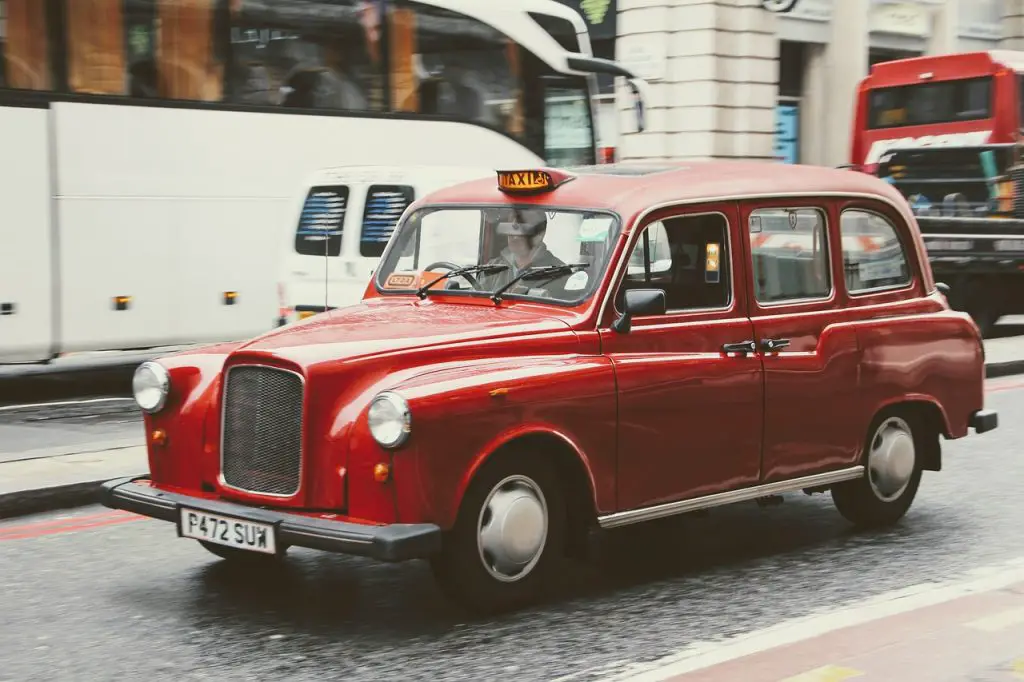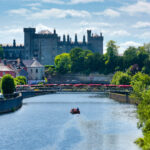England, a country steeped in history, culture, and tradition, has been a major player on the global stage for centuries. From its iconic landmarks to its quirky customs, there’s always something new to discover about this fascinating nation. Here are 35 fun and interesting facts about England that you might not know:
The Birthplace of Many Sports: England is the birthplace of soccer, rugby, cricket, and many other sports. The rules for modern soccer were first standardized in England in the 19th century.
The Smallest City: St. Davids is the smallest city in England by population, boasting around 1,600 residents.
The Oldest Pub: Ye Olde Trip to Jerusalem in Nottingham, established in 1189 AD, claims to be the oldest pub in England.
Land of Castles: England has more than 4,000 castles, from the majestic Tower of London to the picturesque Leeds Castle in Kent.
The World’s Shortest War: England was involved in the world’s shortest war against Zanzibar in 1896. The war lasted just 38 minutes!
The Tube: The London Underground, commonly known as the Tube, is the world’s oldest underground railway, opened in 1863.
A Royal Home: Windsor Castle is the oldest and largest inhabited castle in the world. It’s an official residence of the Queen.
The Lake District: England’s Lake District has only one official lake, Lake Bassenthwaite. The rest are technically “meres” or “waters.”
The World’s Oldest Zoo: The London Zoo, opened in 1828, is the world’s oldest scientific zoo.
A Language Hub: Over 300 languages are spoken in London, making it one of the most linguistically diverse cities in the world.
The Big Ben Misconception: Big Ben is not the name of the famous clock tower in London but the name of the bell inside it.
The Sandwich Origin: The sandwich was named after John Montagu, the 4th Earl of Sandwich, who supposedly invented it.
Driving on the Left: England is one of the few countries where people drive on the left side of the road.
The World’s Longest Name: A village in Wales, Llanfairpwllgwyngyllgogerychwyrndrobwllllantysiliogogogoch, has the longest place name in Europe.
Stonehenge Mystery: The prehistoric monument Stonehenge, built around 3000 BC, remains a mystery. Its purpose and construction methods are still subjects of debate.
The Queen’s Guard: The guards at Buckingham Palace are not just ceremonial. They are highly trained soldiers.
The Taxing Window: In 1696, England imposed a window tax, leading many homeowners to brick up their windows to avoid it.
The Great Fire: The Great Fire of London in 1666 destroyed 87 churches and 13,200 houses but reportedly only killed six people.
The Magna Carta: In 1215, King John signed the Magna Carta, a document that laid the foundation for modern democracy.
The English Breakfast: A traditional full English breakfast includes bacon, eggs, sausages, black pudding, beans, tomatoes, and mushrooms.
The World’s First Postage Stamp: The Penny Black, the world’s first adhesive postage stamp, was issued in England in 1840.
The Beatles: Liverpool is the birthplace of The Beatles, one of the most famous and influential bands in history.
The World’s Oldest Operating Library: The Chetham’s Library in Manchester, opened in 1653, is the oldest free public reference library.
The Rule of Queueing: English people are known for their love of queueing (standing in line). It’s considered very impolite to “jump the queue.”
The Smallest House: Located in Conwy, Wales, the smallest house in Britain measures just 10 feet by 6 feet.
The Birthplace of Shakespeare: Stratford-upon-Avon is the birthplace of William Shakespeare, the world’s most famous playwright.
The Ceremonial Poison Tester: Historically, the Royal Food Taster would check the King or Queen’s meals for poison.
The Ravens of the Tower: Legend says that if the six resident ravens of the Tower of London ever leave the fortress, the kingdom will fall.
The World’s Oldest Annual Marathon: The London Marathon, started in 1981, is the world’s oldest annually run marathon.
The Cursed Diamond: The infamous Hope Diamond was once owned by King George IV. It’s believed to be cursed.
The Greenwich Meridian: Greenwich in London is the point from which time zones are based.
The World’s First Public Museum: The Ashmolean Museum in Oxford, opened in 1683, is the world’s first public museum.
The Penny Farthing: This iconic bicycle with a large front wheel was a popular mode of transport during the Victorian era.
The World’s Oldest Recorded Town: Colchester claims to be the oldest recorded town in England, with a history dating back over 2,000 years.
The Yorkshire Pudding: This savory dish made from batter is a staple in traditional English roast dinners.
From its rich history to its quirky customs, England is a country full of surprises. Whether you’re a history buff, a sports enthusiast, or just curious about the world, there’s always something new to learn about this remarkable nation.
The Ceremonial Key Ceremony: Every night for over 700 years, the Tower of London has been secured with the ‘Ceremony of the Keys’, a ritual of locking up the tower.
The World’s Oldest Railway: The world’s oldest railway of its type has been in operation since the early 1820s and is located between Stockton and Darlington.
The Two-Fingered Salute: The ‘V for Victory’ sign, made famous by Winston Churchill during WWII, has its origins in the English longbowmen showing they still had fingers to draw their bows.
The Mysterious Crop Circles: Wiltshire, a county in South West England, is famous for its prehistoric monuments and mysterious crop circles that appear overnight.
The Origin of Afternoon Tea: Anna, the Duchess of Bedford, introduced the concept of afternoon tea in the 1840s as a way to curb her hunger between meals.
The World’s First Football Club: Sheffield Football Club, founded in 1857, is recognized by both FIFA and The Football Association as the world’s first football club.
The Glastonbury Festival: One of the world’s most famous music festivals, Glastonbury started as a free festival in 1970 and has since hosted some of the biggest names in music.
The Right to Roam: England has a “right to roam” law, allowing the public to access certain private lands for walking and recreation.
The World’s Oldest Top Level Domain: The ‘.uk’ domain is one of the oldest top-level domains in the world, introduced in 1985.
The Hedgehog’s Right of Way: In the 16th century, it was illegal to kill or eat hedgehogs, as they were believed to be beneficial creatures that made milk from cows by sucking on them.
The Penny Lane: Made famous by The Beatles’ song, Penny Lane in Liverpool is a real place and a popular tourist attraction.
The World’s First ATM: The world’s first Automated Teller Machine (ATM) was installed in Enfield, London, in 1967.
The Birthplace of the Industrial Revolution: The Industrial Revolution, which changed the world in the 18th and 19th centuries, began in England.
The World’s First Public Park: Derby Arboretum, opened in 1840, is considered the world’s first public park.
The Origin of the Christmas Card: The tradition of sending Christmas cards began in England in 1843 when Sir Henry Cole and John Horsley created the first one.
England’s rich tapestry of history, culture, and innovation continues to influence the world in countless ways. From its ancient landmarks to its modern-day contributions, the country remains a treasure trove of stories, traditions, and facts waiting to be explored. Whether you’re planning a visit or just curious about this iconic nation, there’s no end to the wonders England has to offer.







